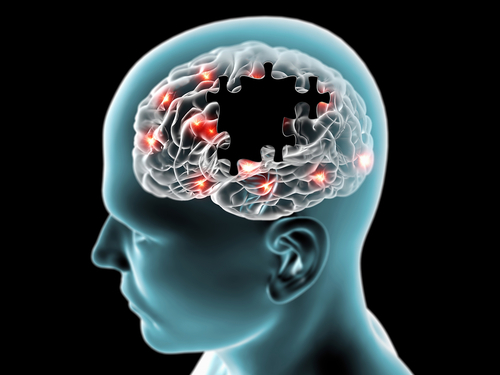Breakthrough study reverses Alzheimer's disease by enzyme depletion
IANS Feb 16, 2018
In a breakthrough, scientists have successfully reversed the formation of amyloid plaques -- crucially involved in Alzheimer's disease -- in the brains of mice with the neurodegenerative disorder, thus improving their cognitive function.

The study showed that gradually depleting an enzyme called BACE1 can completely reverse the formation of amyloid plaques -- protein fragments that the body produces normally. Drugs targeting this enzyme will be able to successfully treat Alzheimer's in humans, the researchers said. "Our study provides genetic evidence that preformed amyloid deposition can be completely reversed after sequential and increased deletion of BACE1 in the adult," said Riqiang Yan from the Cleveland Clinic Lerner Research Institute in Ohio.
Abnormal buildup of beta-amyloid peptide, which can form large amyloid plaques in the brain and disrupt the function of neuronal synapses, is one of the earliest events in Alzheimer's. For the study, published in the Journal of Experimental Medicine, the team generated mice that gradually lose this enzyme as they grow older. These mice developed normally and appeared to remain perfectly healthy over time.
Then researchers bred these rodents with mice that start to develop amyloid plaques and Alzheimer's when they are 75 days old. The resulting offspring also formed plaques at this age, even though their BACE1 levels were approximately 50 per cent lower than normal. Remarkably, the plaques began to disappear as the mice continued to age and lose BACE1 activity, until, at 10 months old, the mice had no plaques in their brains at all.
Decreasing BACE1 activity also resulted in lower beta-amyloid peptide levels and reversed other hallmarks of Alzheimer's disease, such as the activation of microglial cells and the formation of abnormal neuronal processes, Yan said. Loss of BACE1 also improved the learning and memory of mice with Alzheimer's. However, electrophysiological recordings of neurons from these animals showed that depletion of BACE1 only partially restored synaptic function, suggesting that BACE1 may be required for optimal synaptic activity and cognition, Yan said.
-
Exclusive Write-ups & Webinars by KOLs
-
Daily Quiz by specialty
-
Paid Market Research Surveys
-
Case discussions, News & Journals' summaries